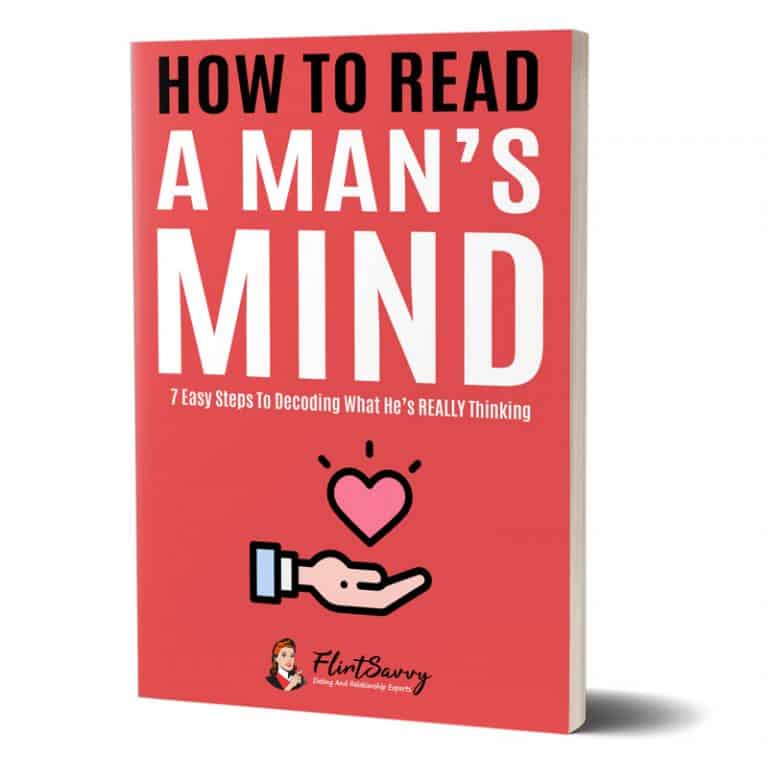Have you ever found yourself feeling extremely upset and sad whenever your significant other leaves, no matter how much time you’ve spent together?
Do you feel like crying as soon as they say they have to go?
You’re not alone. Many people experience separation anxiety when their loved ones leave, and it can be a struggle to cope with these intense emotions.
In this article, we’ll explore the science behind why we feel this way and offer some tips on how to manage separation anxiety in relationships.
So grab a tissue and let’s dive in.
Why Do I Cry When My Boyfriend Leaves?
The answer to this question lies in the attachment we form with our childhood caregivers. Attachment is the bond that forms between us and our primary caregivers, and it shapes how we relate to others throughout our lives.
If we had consistent love and support from our caregivers, we most likely developed a secure attachment style. This means we feel comfortable relying on others and have a sense of security in our relationships.
However, inconsistent love and support can lead to insecure attachment styles. One type of insecure attachment is anxious attachment, which has a lot in common with relationship separation anxiety.
If you have an anxious attachment style, you might worry about your partner leaving you, need a lot of reassurance to believe they really love you, find it difficult to spend time alone, and depend on them to meet most of your needs.
It’s also worth noting that a childhood diagnosis of separation anxiety disorder could increase your chances of experiencing separation anxiety in adult relationships.
Understanding Separation Anxiety In Relationships
Separation anxiety in a relationship is the fear, anxiousness, and/or panic that arises when being away from a loved one or someone to whom we feel a strong attachment. It’s normal to feel some loneliness and uneasiness about being away from loved ones, but when it feels out of control or causes a lot of distress, it can put a strain on our relationships and may require attention.
One of the main reasons people feel anxiety when away from their partner is because they tend to obsess over whether their partner is cheating on them or not. This could be because of past experiences where long-distance relationships ended poorly or an ex cheated on them. However, it’s important to remember that our current partner is not our ex, and it’s essential not to project past insecurities onto our present relationship.
If we experience extreme anxiety and fear of abandonment when our partner is not near, we may be dealing with separation anxiety. It’s typical to miss our partner when we’re not together, but for some people, distance can be very anxiety-provoking. Being away from our partner or being alone can lead to excessive anxiety and fear. It may be hard to focus on anything else aside from the moment we’re back together. We may be very worried about something harming them or us.
It’s essential to communicate with our partners about our feelings and let them know we might need a little extra care during this time apart. They can then be mindful, perhaps checking in more often or simply being more sensitive to our needs and feelings. It’s okay to ask for what we need in a relationship, and it’s crucial to remember that both partners have to put in effort to make the relationship work.
Being aware of our attachment style and childhood experiences can help us understand why we react the way we do in relationships. It’s normal for our responses in relationships to come from past experiences, traumas, or unmet needs. However, recognizing these patterns and learning how to communicate about them is one of the most important first steps in dealing with separation anxiety in relationships. Seeking professional help, such as counseling or therapy, can also provide valuable tools for coping with separation anxiety and building healthier relationships.
The Science Behind Why We Cry When Our Partners Leave
When our partners leave, we may experience a range of emotions, including sadness, anxiety, and distress. These emotions can lead to tears, but why do we cry in response to relationship separation?
Researchers have found that separation from a romantic partner can lead to increased levels of the stress hormone cortisol, similar to the response seen in drug withdrawal. This is because the pair bond evolved from the parent-child bond, which may explain why we feel romantic attachments so strongly. The same neurochemicals implicated in both relationships – oxytocin, vasopressin, and dopamine – are also involved in emotional attachment and separation.
Studies have shown that cohabiting and mating increase levels of oxytocin and vasopressin, hormones that foster emotional attachments and activate brain areas associated with reward. When prairie voles are separated from their partners even for a short time, they experience withdrawal-like symptoms. Similarly, in human couples, social psychologist Lisa Diamond observed an increase in cortisol in subjects after they were separated four to seven days.
The implication is that when we cry in response to relationship separation, we are signaling distress and communicating our need for social support. Tears may also serve a therapeutic role, though researchers say the supposedly cathartic role of “a good cry” has been overstated.
How To Identify And Manage Your Emotions
If you identify with the symptoms of relationship separation anxiety or anxious attachment, it’s important to be aware of your emotions and take steps to manage them. Here are some tips:
1. Recognize your triggers: Take note of situations or thoughts that trigger your anxiety. This could be when your partner is away, when you’re not sure if they’re safe, or when you feel like they might leave you.
2. Practice self-care: Take care of yourself physically and emotionally. This could mean getting enough sleep, exercising regularly, eating well, and engaging in activities that make you happy.
3. Communicate with your partner: Talk to your partner about your feelings and fears. Let them know what you need to feel secure in the relationship, but also be willing to listen to their needs and boundaries.
4. Seek therapy: If your anxiety is affecting your daily life or causing significant distress, consider seeking therapy. A therapist can help you work through your emotions and develop coping strategies.
5. Challenge negative thoughts: When negative thoughts or fears arise, challenge them with rational thinking. Ask yourself if they’re based in reality or if they’re just anxious thoughts.
Managing relationship separation anxiety takes time and effort, but with the right tools and support, it’s possible to overcome it and build a healthy, secure relationship with your partner.
Tips For Coping With Separation Anxiety In Relationships
If you experience separation anxiety in your relationship, it can be challenging to manage. Here are some tips to help you cope:
1. Acknowledge your feelings: It’s essential to recognize and acknowledge your feelings of separation anxiety. Don’t try to push them away or ignore them. Instead, try to understand where they’re coming from and why you feel this way.
2. Communicate with your partner: Talk to your partner about how you’re feeling. Let them know that you struggle with separation anxiety and that it’s not a reflection of how much you trust or love them. Communication is key in any relationship, and being open and honest can help ease your anxiety.
3. Set boundaries: It’s essential to set boundaries for yourself and your partner. Decide how often you’ll communicate and stick to those guidelines. Having a plan in place can help alleviate some of the anxiety that comes with not knowing when you’ll hear from your partner.
4. Practice self-care: Take care of yourself while your partner is away. Do things that make you feel good, like exercising, reading a book, or spending time with friends. Focusing on yourself can help distract you from anxious thoughts.
5. Seek professional help: If your separation anxiety is severe and impacting your daily life, consider seeking professional help. A therapist can help you work through your anxiety and develop coping mechanisms to manage it.
Remember, separation anxiety is common in relationships, but it doesn’t have to control your life. By acknowledging your feelings, communicating with your partner, setting boundaries, practicing self-care, and seeking professional help if necessary, you can learn to manage separation anxiety and enjoy a healthy relationship with your partner.
Building A Stronger Relationship: Communication And Trust
All relationships have to deal with tough stuff now and then, but anxiety can make things more threatening and bigger than they are. The temptation might be to avoid talking about difficult issues with your partner because of concerns about what it might do to the relationship. However, difficult issues don’t go away – they fester until they reach boiling point. Trusting that your partner – and you – can cope with a hard discussion is crucial. Relationships are built on trust, and trusting that your relationship can power through difficult conversations is an important one.
To build a stronger relationship, communication and trust are key. Especially if you or your partner are prone to worrying or inadequately communicating, anxiety will be a part of your relationship, and that doesn’t necessarily make it a bad thing. Social by nature, we are pulled powerfully to love, long to feel connected, and want to protect our connections when we secure them. It isn’t hard to feel anxious when we don’t feel connected, and also anxious when we do feel connected, anticipating a time when we may not be. Anxiety and relationships go hand in hand.
To improve communication in your relationship, Dr. Lisa Firestone recommends what she calls “unilateral disarmament” as a tool couples can use to defuse arguments and be close again. “What it involves is momentarily dropping your side of the debate and approaching your partner from a more loving stance,” explained Firestone. “The idea is that when couples have tension between them, perhaps from not communicating successfully or directly, they start to build resentments toward each other, which often reach a tipping point. An argument begins, then escalates based on an overflow of pent-up frustration and flawed communication. Heated moments are, however, the worst times to try to solve problems or make our points heard.” By dropping our half of the dynamic and saying “I care more about being close than winning this argument,” we express vulnerability that often softens our partner and allows them to feel for us and let their guard down. We can then have a more effective conversation about any real issues in a less intense moment when we both feel more ourselves.
Additionally, being open and honest with your partner is crucial for building trust in your relationship. It’s important to communicate your needs and feelings clearly without fear of judgment or rejection. If you’re feeling anxious about something in the relationship or need reassurance from your partner, express it in a way that is respectful and non-accusatory. Trust is built over time through consistent actions that show you are reliable and dependable. Be there for your partner when they need you, keep your promises, and be open and transparent in all aspects of the relationship.






